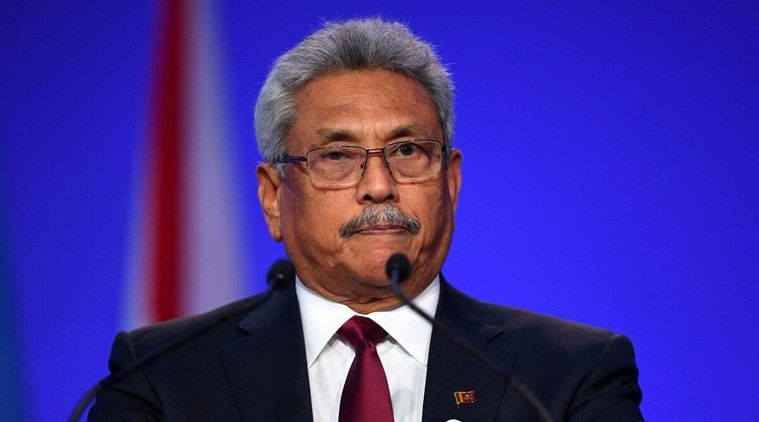Danish Ali was 18 when Gotabaya Rajapaksa became a hero. It was 2009. Gotabaya, then the Defence Secretary, along with his brother and then President Mahinda Rajapaksa, were hailed for killing LTTE supremo V Prabhakaran and ending Sri Lanka’s decades-long civil war.
“I had just passed out of school, and I left for Australia to study soon after,” Ali says. “At that time, everyone was cheering him on as the great leader… but my family knew he was a racist and that they were invoking Sinhala pride to dominate over the minorities in the country.”

The past few months changed everything – both for Sri Lanka as well as Gotabaya.
Story continues below this ad
Gotabaya, who resigned on Thursday after fleeing the country, is now in Singapore, a fugitive leader. For Ali, now 31 and a prominent face of the Argalaya, the youth-led protest movement that triggered the call for change amid a gruelling economic crisis, it’s a case of priorities set right.
“Killing terrorists is acceptable,” he says, “We do appreciate that. But they cannot do what they want.”
 Gotabaya, who resigned on Thursday after fleeing the country, is now in Singapore, a fugitive leader. (File Photo/Reuters)
Gotabaya, who resigned on Thursday after fleeing the country, is now in Singapore, a fugitive leader. (File Photo/Reuters)
Since the war ended, Gotabaya, having earned a demi-god-like status, ruled the country through fear. As Defence Secretary, he silenced his critics – some through white-van kidnappings and killings – the most famous case being that of Lasantha Wickrematunge, editor of The Sunday Leader who was killed in 2009.
Along with Mahinda, as Gotabaya continued to stoke Sinhala pride, Buddhist extremist group Bodu Bala Sena got a free hand to unleash violence against Muslims.
Story continues below this ad
That’s perhaps why Sanka Jayasekere, a 28-year-old wealth plan manager at an insurance firm, believes Gotabaya’s fall from grace is “karma”. And an irony.
“The very leader who divided us all these years has become the biggest unifier of all communities, who came together and forced him to resign,” says Jayasekere.
“Everyone came together… If we – Sinhalas, Tamils, Muslims, Buddhists and Christians – were divided, we could have never achieved this goal. We showed the world that we can oust the most powerful family in Sri Lanka through peaceful protests.”
For Ali, the protests mean Sri Lanka can no longer be divided by invoking Sinhala pride. “It’s all about Sri Lankan pride,” he says.
Story continues below this ad
Bhavani Fonseka, a Senior Researcher and Attorney at Law with the Centre for Policy Alternatives, says the present crisis which peaked with Gotabaya’s “historic” resignation stemmed from the former President’s poor decisions.
“The authoritarian governance model is not working… and the key takeaway from the three-months of the Agaralaya (struggle) is that citizens need to have a voice in governance. One individual can’t hold so much power” she says, cautioning, however, that Sinhala nationalism remains “very much around” in the country.
Former Sri Lankan High Commissioner to India, Austin Fernando, who was Governor in eastern province as well earlier, says Gotabaya’s tax cuts and his sudden firman to farmers to switch to organic farming were “callous mistakes”.
Now retired and based in Colombo, Fernando says that as Gotabaya attained a “God-like status” in the eyes of his supporters, even the former President started believing “in his own myth that he can do what gods can do”.
Story continues below this ad
“Nobody objected to him… And he did not listen to anyone, except a handful of people. That was his undoing.”



 Gotabaya, who resigned on Thursday after fleeing the country, is now in Singapore, a fugitive leader. (File Photo/Reuters)
Gotabaya, who resigned on Thursday after fleeing the country, is now in Singapore, a fugitive leader. (File Photo/Reuters)





























